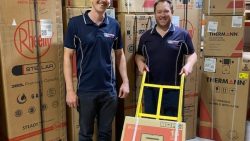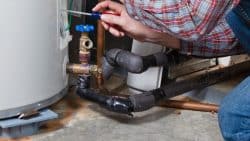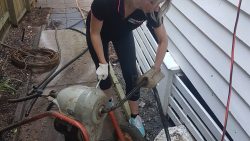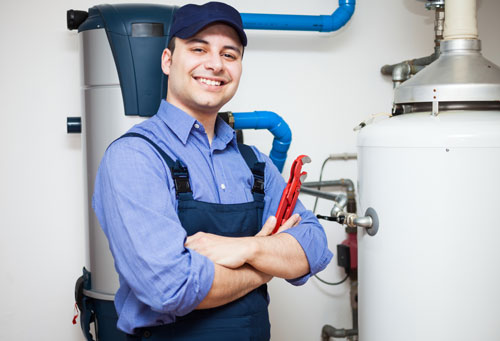
Optimal Hot Water System Placement:Key Considerations and Recommendations
If you’ve found yourself in the unfortunate situation of needing to replace your old hot water unit, or you building a new house and wondering what is the most ideal hot water system placement, here we’ll go through a few important considerations you should make. Firstly to make the installation and future maintenance easier but more importantly, ensure you get the best most efficient performance from your new water heater.
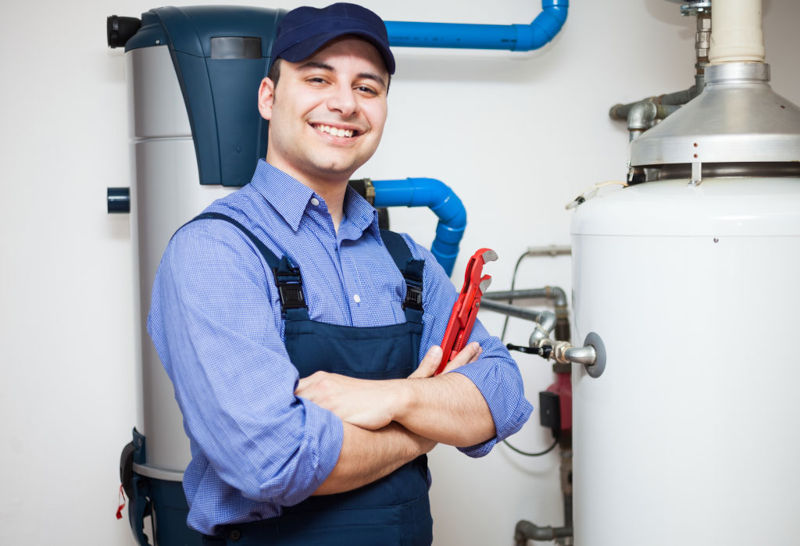
What are the regulations and how will they affect my hot water system placement?
The location of your hot water unit can sometimes be limited by several factors. Australian standards outline locations that can and cannot be utilised depending on the style of hot water unit you are using. Manufacturers also have their own specifications which may change depending on the model.
Need a new hot water system installed?
Please call and we will be able to assist you today.
Call: (07) 3878 4444
We’ve got a brilliant team on the ground right now who’ll give you real, honest advice and a great price. And all our work is 100% guaranteed.
Gas hot water systems are most affected by this as the safety implications of a wrongfully positioned hot water system can be huge. The AS/NZS 5601.1 2013 outlines the rules around the installation and location of gas appliances and must be followed to maintain safety and compliance. Most manufacturers have indoor and outdoor models, so it is important to make sure the correct unit is chosen. Things that will impact the location of a gas hot water unit are:
- Proximity to doors, windows, and other openings to the building
- Flue termination point and separation distances associated with the flue gases they emit
- Distance from gas meters or LPG cylinders
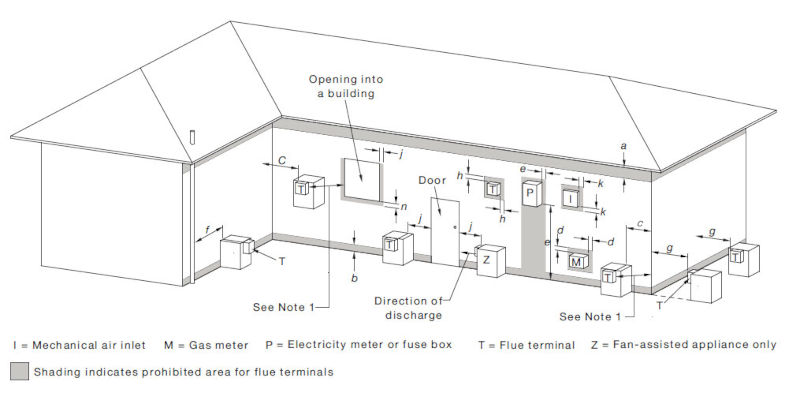
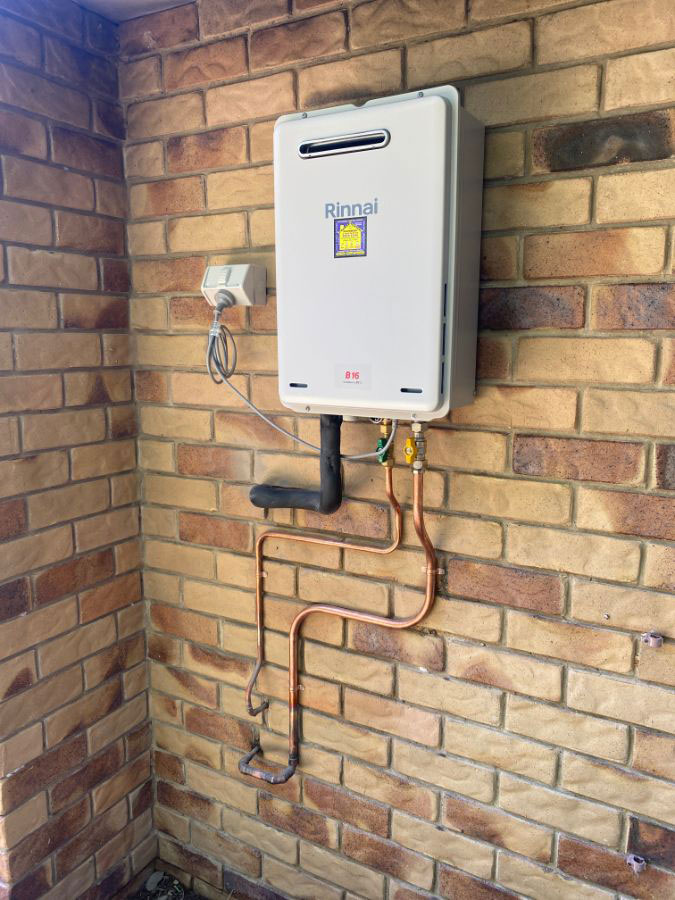
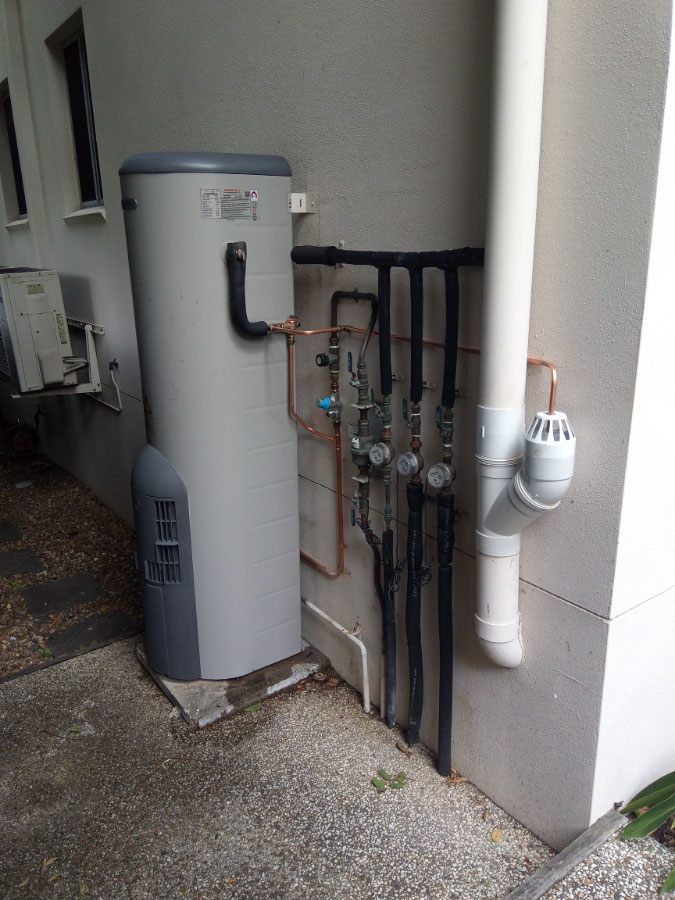
Electric hot water units are somewhat easier to manage and the regulations around the location of your system are fairly relaxed. These tanks can be located inside or outside with no need to purchase specific models as most are designed for either. Some rules do apply, however.
If installed outside they must be on a concrete base which also allows for free flow of air under the unit to prevent corrosion. Units installed inside will need to be placed in a safe tray (https://www.conradmartens.com.au/blog/safe-tray-hot-water/) to help minimize the risk of water damage should the unit leak.
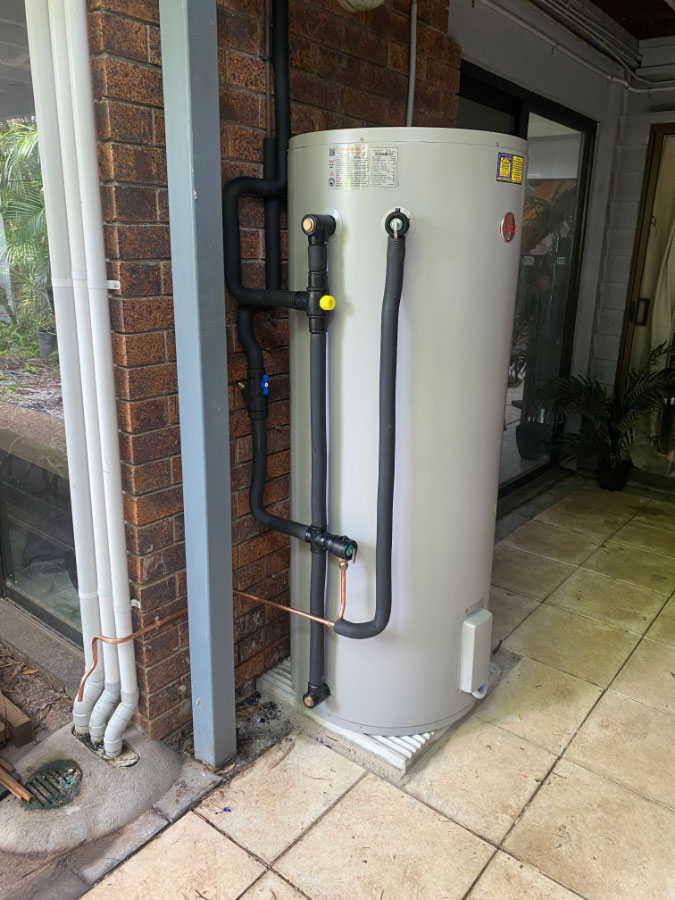
Similar to electric hot water units, heat pump systems can be installed outside or inside, but it’s important to note that installation inside will greatly reduce the efficiency of the system and so is not recommended. They may also be annoying if located close to bedroom windows. They are roughly as loud as an air conditioning unit, which in isolation may not sound overly bad, but during the night or early morning will be a nuisance.
Performance considerations.
While the regulations and manufacturers’ installation instructions may point to specific rules for locating your hot water unit, there are some other points to consider when installing a new water heater. The biggest factor is the length of run between the hot water system and the taps used most often. Having your water heater a long way away from your taps will increase delivery time and heat losses through the pipework. These two things will reduce efficiency greatly.
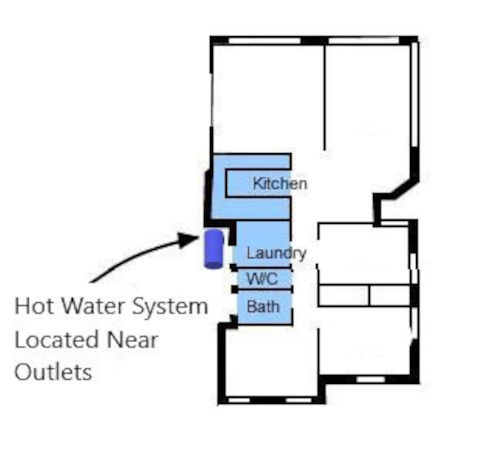
Considerations for installing a hot water unit inside.
If you’re installing a new hot water unit and it will be inside your house, we would always recommend the use of a safe tray. The biggest risk to a hot water unit being inside is water damage should the system leak. Access to the system is also critical. Many internal systems are located in cupboards or ceiling spaces. While cupboards are usually ok, ceiling spaces can be especially difficult to work in and will add considerable cost to any replacement or maintenance.
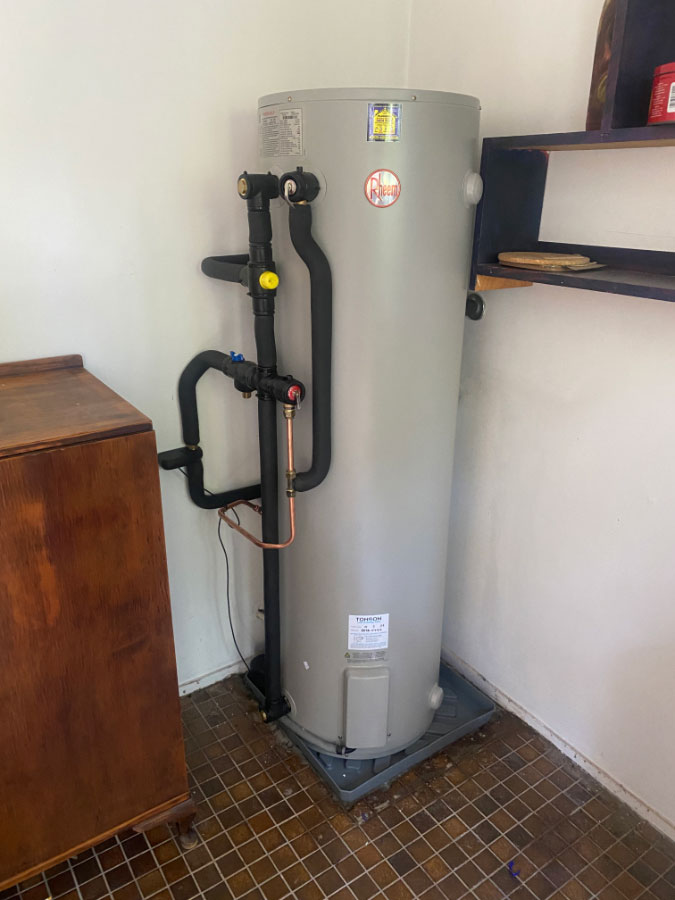
Where shouldn’t my hot water unit be located?
Preferred locations for hot water units are sometimes decisions made for us by rules and regulations. However, there are some locations that we would NOT recommend. As previously discussed, ceiling spaces are certainly undesirable places for hot water units due to the limited access and inability of the homeowner to see the unit and pick up any issues early. Under houses, where the height is restricted or access into the area is tight would also fall into the category for similar reasons to ceilings. Swimming pool plant rooms which would expose the system to chemicals such as chlorine and areas with no or difficult access to drainage would also not be recommended. The Ideal location can sometimes be difficult to achieve. But, ticking as many boxes as possible can make a big difference. Meeting all the relevant standards and being as close to the main point of use, coupled with the correct choice of system (link to the replacing hot water system blog) will see your new hot water unit performing as efficiently as possible.
Conclusion:
When considering the ideal location to install a hot water system, several important factors should be considered to ensure efficient performance and compliance with regulations. Many of these will be determined by the original design of the property and plumbing systems. Ideally, the location of the hot water unit should consider the distance from the taps, access for maintenance, the risk of water escape and any relevant regulations. By considering all these factors, a hot water unit can be installed in the most efficient and appropriate location possible. We recommend consulting a hot water specialist, hydraulics engineer or builder to ensure the location is suitable.
Yours in keeping the good life flowing!
The Conrad Martens Team
For the best price, service and advice!

